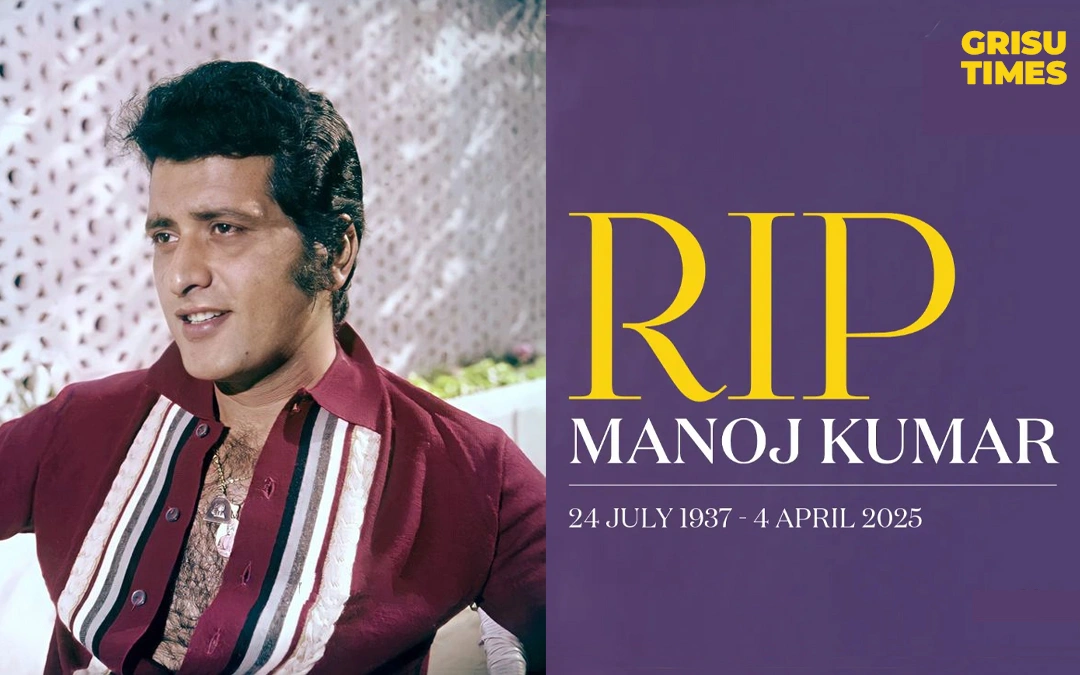In a cinematic journey that spanned decades and defined a generation, Manoj Kumar, the face of patriotic Indian cinema, bid farewell to the world on April 4, 2025, at the age of 87. With his passing, India lost not just a legendary actor and filmmaker, but a symbol of national pride woven deeply into the celluloid fabric of the country.
The Rise of ‘Bharat Kumar’
Born Harikrishan Giri Goswami on July 24, 1937, in Abbottabad (now in Pakistan), he adopted the screen name Manoj Kumar after being inspired by Dilip Kumar’s character in Shabnam. His film career began with Fashion (1957), but it was Shaheed (1965), where he portrayed Bhagat Singh, that marked his transformation into a national icon.
With Upkar (1967), inspired by then-Prime Minister Lal Bahadur Shastri’s slogan “Jai Jawan, Jai Kisan”, Manoj Kumar began crafting a cinematic legacy rooted in patriotism and social justice. From Purab Aur Paschim (1970) to Roti Kapda Aur Makaan (1974) and Kranti (1981), his films weren’t just hits — they were cultural movements.
A Director with Purpose
Manoj Kumar wasn’t just a gifted actor — he was a visionary behind the camera. His films often tackled themes of inequality, duty, and the India he dreamed of. His clean, compelling storytelling earned him admiration from audiences and peers alike.
His characters weren’t superheroes. They were farmers, soldiers, revolutionaries — people you could believe in.
Legacy Etched in Honors
Nicknamed “Bharat Kumar” for his unmatched commitment to patriotic cinema, Manoj Kumar’s accolades include:
- Padma Shri (1992)
- Dadasaheb Phalke Award (2015) – India’s highest honor in cinema
- National Film Awards, Filmfare Awards, and multiple lifetime achievement recognitions
In 2024, he was honored once again for his cultural impact as a symbolic figure of “cinema with conscience.”
Manoj Kumar passed away at his Mumbai residence after complications from heart and liver conditions. He was cremated with full state honors at Pawan Hans Crematorium. The Indian film fraternity — from Amitabh Bachchan and Hema Malini to Akshay Kumar — stood in solemn tribute.
Prime Minister Narendra Modi mourned his death, calling him “an icon of Indian cinema remembered for his patriotic zeal.”
Manoj Kumar’s cinema continues to echo through time — his values, stories, and screen presence still touch millions. As new generations watch his films, they don’t just see a character — they see India.
“He made patriotism cinematic, without noise. He made nationalism poetic, without apology.”
— Akshay Kumar
Discover more empowering stories and insightful content like this on GRISU TIMES, your go-to destination for inspiration and knowledge.
Follow GRISU TIMES on Instagram: https://www.instagram.com/grisutimes/

